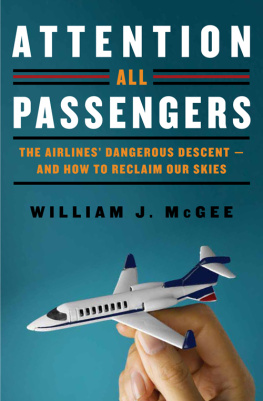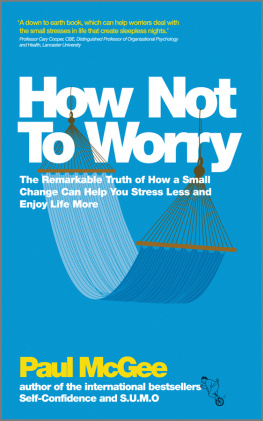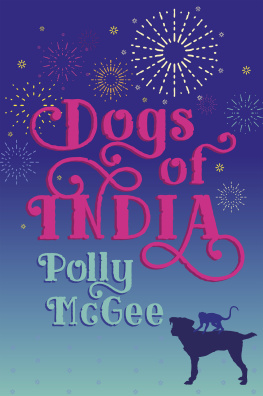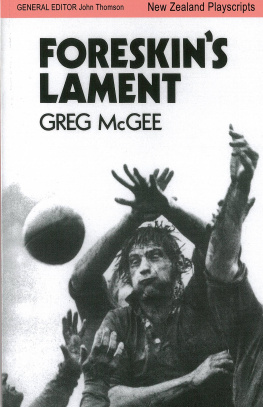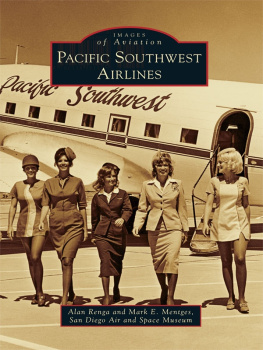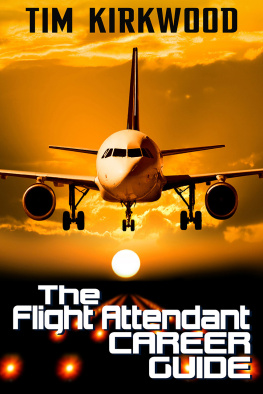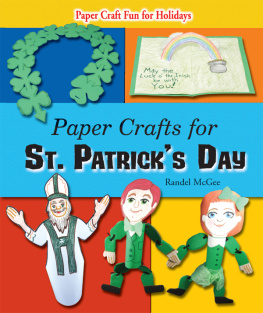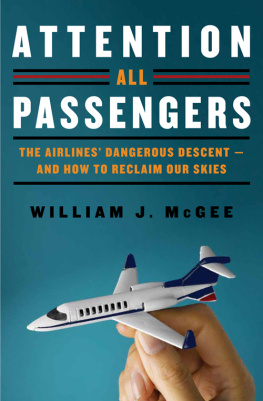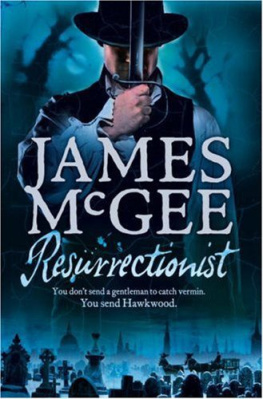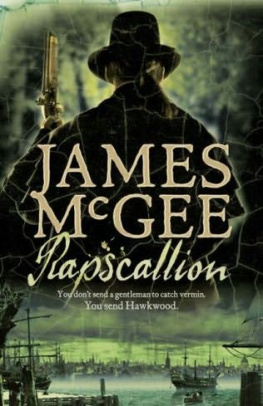Attention All Passengers
The Airlines Dangerous Descent
and How to Reclaim Our Skies
William J. McGee

For Nick
Contents
The author does not receive any income from airlines or other travel suppliers and does not invest or own shares in any travel companies. He also does not collect or redeem airline frequent flyer mileage or travel loyalty points. Although he worked for three U.S. airlines between 1985 and 1992, all three were financially liquidated and he receives no pension or benefits. Furthermore, he did not accept any compensatory flights or other free services, accommodations, or gifts from airlines or other travel suppliers while researching this book. All quotes in the book that are not cited with an endnote originated in a series of interviews conducted by the author between January and August 2011.
I used to love the airlines. I loved everything about flying. In fact, aviation seems to run in my blood. I have relatives who have piloted airplanes, fixed airplanes, and ridden airplanes into combat, and I have quite a few siblings and cousins who have toiled for airlines over the years. Way back in June 1927 my grandfather Bill McMullen snuck my mother out of school and escorted her onto a trolley car so they could travel from Queens into Manhattan. She was six years old and had spent most of the winter in a sanitarium fighting for her life against diphtheria, so my guess is that he left his other kids behind so he could remind her just how sweet life can be. He hoisted his little girl onto his shoulders as she watched Colonel Charles Lindbergh, the worlds most famous pilot, pass by in a ticker-tape parade. They were celebrating the Lone Eagles triumphant return from Paris, a city my grandfatherand namesakehad visited just a few years earlier during World War I with the American Expeditionary Forces.
Its a year worth considering. The American Century was unfolding the way Broadway unfolded before Lucky Lindy during that parade. The possibilities must have seemed limitless: America was moving faster, further, higher. Despite the ominous stock bubble and the nascent march of fascism, the country clearly had faith in its workforce, in its technology, and in itself. Its no coincidence that 1927 was also when a blue-blood Yalie and former U.S. Navy pilot named Juan Trippe founded what would become the worlds all-time greatest airline, Pan Am.
More than six decades later, in 1991, I was the operations system control manager on duty when the final Pan Am Shuttle flight rolled up to the gate at LaGuardia Airport in New York. In 1985 I had taken what I thought would be a summer job in the airline industry, which quickly led to working for four different carriers, and in many ways, its as if I never left. After twenty-seven years, Im still immersed in the business, though now I write and advocate about it rather than work in it. As the old-timers say, Ive got Jet A-1 fuel coursing through my veins.
I really did love the business. I loved airplanes. I worked in the airlines, went flying on my days off, served in the Air Force Auxiliary, vacationed at air shows, and even stayed up nights writing about AirFair, my own fictional air carrier. As Ed Acker, the former CEO of Air Florida and Pan Am, aptly noted, Once you get hooked on the airline business, its worse than dope. Amen.
And so, like millions of other Americans, it pains me to see whats happened to what was at one time the exhilarating experience of boarding a flight. Today, commercial flying sucks. And everyone knows it.
The first time I traveled to an airport I was five years old. Most of my very large family piled into our 1965 Mercury Colony Park station wagon and my brother and I had to be extra careful crawling over the tailgate to settle into the rear-facing third seat. That was because we were wearing dark suits, white shirts, and ties. My sisters were wearing dresses and shiny shoes. We were en route to John F. Kennedy International Airport. And we werent even flying! It was 1967 and my oldest brother was home from Fort Gordon, in Georgia, for Thanksgiving leave. Think about that. We were just visiting an airport, one of dozens of families waiting in the arrivals hall as a planeload of shaved GIs filed through with duffel bags slung over their shoulders. And we were dressed as if it were Easter Sunday.
I consider that every time Im crammed in next to some guy who crosses his bare legs against my tray table as I count the curly little hairs on the knuckle of his big toe and munch on the Blueberry Pomegranate Trail Mix Crunch that is just four dollars on US Airways. In researching this book, I spoke to a lot of veteran travelers who whined about the good old days romanticized on TV in Mad Men and Pan Am you know, when flyers didnt dress in shorts and tank tops and flip-flops, employ stage voices to speak on cell phones in crowded jet bridges, hit old ladies in the noggin cramming overstuffed carry-ons into overhead bins, or engage in fisticuffs with flight attendants. In other words, they were civilized.
Lets be clear. We asked for democracy, for the eradication of that dated term jet set , for air travel to become accessible to the masses, for flying to become a God-given constitutional right like bearing arms or blogging in all uppercase letters with no punctuation. We asked for what the Universal Declaration of Human Rights calls freedom of movement. And the 1978 Airline Deregulation Act gave us just that. It took the government out of the airline scheduling business and empowered the free market to determine where and how often carriers would fly, and how much they would charge passengers. So for some the perception is that behavior that used to be confined to other locations has become commonplace at thirty-five thousand feet.
But it doesnt have to be this way. The masses are also allowed into shopping malls and restaurants, theaters and arenas, schools and offices, parks and libraries and houses of worship. Somehow those venues dont erupt into Argentinean futbol riots. One would think the terms subway rage or bus rage would have entered the lexicon before air rage did. Today, riding Amtrak offers a better customer experience than flying on an airline. Heck, riding Greyhound offers a better customer experience. No, flying sucks because the airlines have rapidly deteriorated, due to a handful of greedy executives who have sucked the civility out of our own publicly funded airports and airways, and lax government regulators who have allowed customer service, security, and even safety to declineall in the name of worshipping the free market, which of course is anything but free for customers. Carriers refuse to put money into improving their operations, and were partly to blame for allowing it all to unravel in such a disheartening way.
Air travel has become a commodity, and the airlines themselves an oligopoly that has carved up hub airports the way cable television providers have carved up zip codes. Consequently airline execs do not care about customers in the way a service industry should. Contacting an airline has become akin to calling your cable company when theres an outagegood luck with that. In fact, the chief executive of the Irish low-cost airline Ryanair was quoted a few years back as saying: Air transport is just a glorified bus operation. These days, many passengers might not have a problem with that view. The problem is that its a poorly run bus operation.
Over nearly three decades, Ive been given a unique micro and macro view of the airline experience. I began my career by loading bags out on the tarmac and then moved into ground operations and flight operations management for third-tier playersOverseas National Airways, Ogden Allied, Tower Air. Then I worked for Pan Am. Eventually, I left aviation and began writing about the big picturethe CEOs, bankruptcies, mergers, start-ups, shutdowns, strikes, lawsuits, accidents, and the terrorism. And in recent years as the aviation consultant to nonprofit Consumers Union, Ive become a passenger advocate, testifying before Congress and speaking out on customer service and safety. In May 2010, Secretary of Transportation Raymond LaHood selected me as the consumer advocate on the Future of Aviation Advisory Committee, and I spent seven months debating these customer service and safety issues with airline executives and government regulators.

